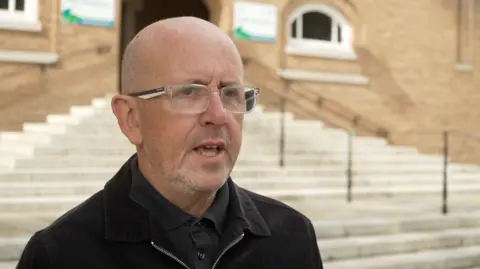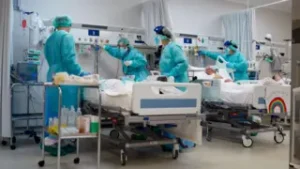Coroner highlights lack of specialist ME care
Report says there is no available funding for research and treatment of the chronic fatigue syndrome.

 Family handout/PA Media
Family handout/PA MediaA coroner has highlighted the lack of specialist care for patients with myalgic encephalomyelitis (ME) after the death of a 27-year-old woman.
Deborah Archer has spoken out following the death of Maeve Boothby-O’Neill, who had suffered with ME for a decade before she died at home in Exeter in October 2021 from severe malnutrition.
The coroner said there was no current available funding for research into and treatment for the chronic fatigue syndrome and there was “extremely limited” training for doctors treating patients.
Ms Archer, assistant coroner for Devon, Plymouth and Torbay, wrote a preventing future deaths report recording her concerns.
The coroner had earlier concluded Miss Boothby-O’Neill had died from natural causes “because of severe myalgic encephalomyelitis (ME)”.
The inquest heard she had been admitted to the Royal Devon and Exeter Hospital three times in 2021 for treatment for malnutrition.
The 10-day hearing focused on the final few months of her life, by which time she was confined to bed, unable to chew food and had difficulty drinking because she was not able to sit up.
Miss Boothby-O’Neill had been suffering from fatigue since the age of 13, which got worse after she completed her A-levels.
‘No commissioned service’
The coroner said the evidence showed there were no specialist hospitals or hospices, beds, wards or other healthcare provision in England for patients with severe ME.
She wrote: “This meant that the Royal Devon and Exeter Hospital had no commissioned service to treat Maeve and patients like her.”
Ms Archer said the 2021 Nice guidelines on ME did not offer any detailed guidance on how severe ME should be managed at home or in the community.
“And in particular whether or not there is any necessary adaptation needed to the 2017 guidance on nutrition support for adults: oral nutrition support, enteral tube feeding and parenteral nutrition,” she wrote.
The coroner has sent her report to the Department of Health and Social Care, NHS England, the National Institute for Health and Care Excellence (Nice), the Medical Research Council, the National Institute for Health and Care Research and the Medical Schools Council.

Maeve’s father, Sean O’Neill, a journalist with The Times newspaper, described the coroner’s report as “short, stark and shocking”.
He said: “She has found that NHS care for people with severe ME is ‘non-existent’, that medical training is ‘extremely limited’ and research budgets inadequate. She warns there will be further deaths from ME unless action is taken.”
“The report is addressed directly to (Health Secretary) Wes Streeting and I urge him to respond in a constructive and meaningful way.
“People with the post-viral illnesses ME and long Covid have been neglected for too long.
“If ministers are serious about tackling the problem of long-term sickness they must improve care and treatment for sufferers.
“The coroner has also sent copies of her report to the NHS, the Medical Schools Council, the medical research funders and Nice.
“It is my plea, as a grieving and heartbroken father, that these bodies step up and take steps to prevent future deaths from this awful illness.”
‘Learn the lessons’
A Department of Health and Social Care spokeswoman said: “Our deepest sympathies are with Maeve’s family and friends in this tragic case.
“Every patient deserves to have their condition understood and treated to the highest standard, and this is a heart-wrenching example of a patient falling through the cracks.
“Maeve and her family were forced to battle the disease alongside the healthcare system which repeatedly misunderstood and dismissed her.
“It is important that we learn the lessons from every prevention of future deaths report, and we will consider the report carefully before responding appropriately.
“We are committed to improving the care and support for all those affected, and we intend to publish a Final Delivery Plan this winter which will focus on boosting research, improving attitudes and education, and bettering the lives of people with this debilitating disease.”







